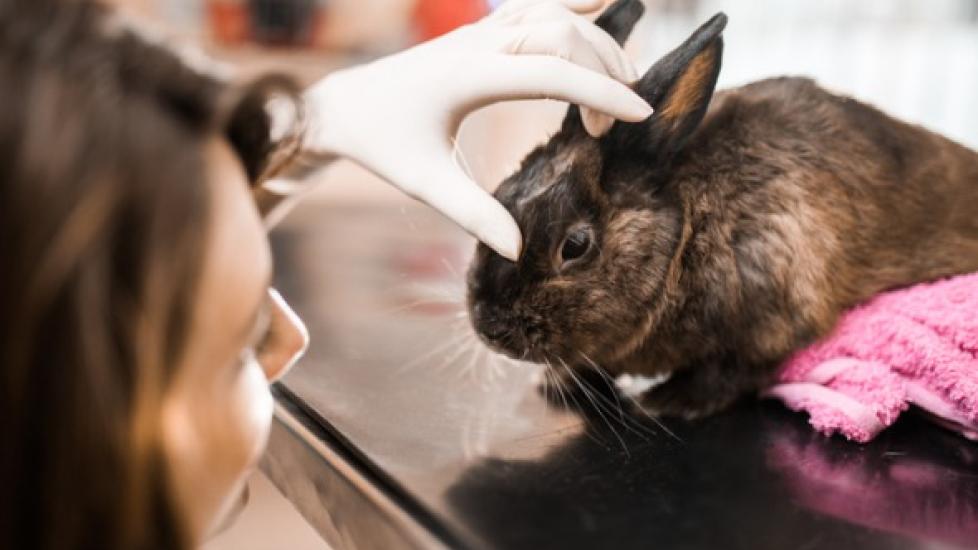Pneumonia in Rabbits
Pneumonia in Rabbits
Pneumonia occurs when there is a severe inflammation in the lungs leading to dysfunction of the entire respiratory system. This inflammation may be due to a bacterial, fungal, viral or parasitic infection, or because the rabbit has inhaled a foreign object into its lung.
Environmental factors, such as smoke or chemicals, an inability to swallow, coma, and dental disease may also lead to pneumonia.
Symptoms and Types
Some common signs seen in all four major types of pneumonia include:
- Anorexia
- Weight loss
- Lethargy
- Fever
- Sneezing
- Excessive salivation
- Exercise intolerance
- Nose discharge
- Eye discharge
- Facial abscesses
- Difficulty breathing
- Coughing is not usually a symptom seen in rabbits
The bacterial form of pneumonia occurs when the responsible organism enters the lower respiratory tract, primarily through inhalation or choking, but an organism can also enter the body through the bloodstream. The body responds severely with bronchitis, swelling, lack of blood supply, tissue death, abscess formation, and even lung collapse. If the animal has a poor immune system, then even bacteria that are normally present in the mouth, throat and lungs can become infectious. Due to all of this, there may be very low levels of oxygen available in the blood.
Fungal infections usually occur when the spores are inhaled, entering the lung (and sometimes the bloodstream). This triggers the rabbit's immune system to send white blood cells to fight the invading organism. These cells are then intercepted and engulfed by the organisms, releasing a chemical (cytokine) which impairs oxygen distribution in the lungs.
Viral infections occur in much the same way, except it is the virus which enters the lung and releases the cytokine. However, viruses also make rabbits more susceptible to bacterial infection; for this reason, bacterial pneumonia can be a related complication of viral pneumonia.
Parisitic pneumonia, on the other hand, occurs when a parasite enters the skin or is inhaled, causing cellular damage in the lungs and depriving the rabbit of oxygen.
Diagnosis
- Rule out other respiratory and heart disorders
- Urine analysis
- Blood serum analysis with tests specifically to identify the infectious organism (i.e., bacteria, fungus, virus)
- X-rays of the chest region to identify abscesses and lesions
- Cellular analysis of discharge from the nose and throat
Treatment
If you suspect pneumonia in your rabbit you must take it to the veterinarian immediately, as untreated cases can become fatal.
If the rabbit is suffering from anorexia, fever, weight loss, or lethargy, hospitalization may be required; electrolyte and fluid therapy is also helpful for maintaining and hydrating the rabbit. Your veterinarian will prescribe antimicrobial, antiviral, antifungal, or antibiotics, depending on the specific organism and which prescribed chemical is needed to destroy the infection. If the chest or lungs are congested, oxygen (nebulization) therapy may be used to clear the rabbit's airways.
Living and Management
The rabbit's activity should be restricted, whether or not it needs hospitalization. Also, it is imperative that you encourage your rabbit to eat during treatment and following treatment. In addition to its pellet diet, offer a large selection of fresh, moistened greens such as cilantro, romaine lettuce, parsley, and carrot tops. If the rabbit is refusing to eat, a syringe of gruel may be necessary. Your veterinarian will advise you on the best way to feed your rabbit, and which foods are best under the specific circumstances.
Featured Image: iStock.com/skynesher
